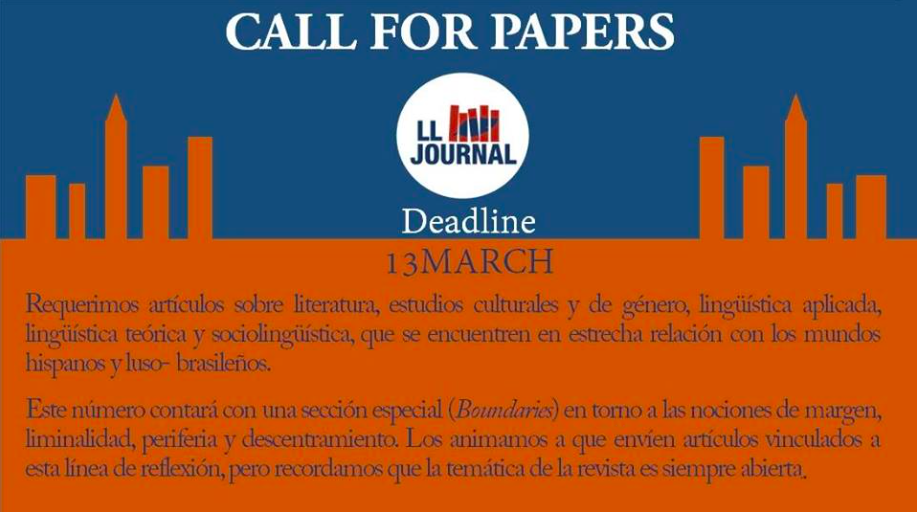Forms of Feeling: Navigating the Affective Turn
UMass Interdisciplinary Graduate Conference
Conference Date: April 2, 2016
Location: University of Massachusetts Amherst
Submission Deadline: February 12, 2016
Keynote Speaker: Patricia Clough (The Graduate Center, CUNY)
From the conference organizers:
Sibling rivalry, team camaraderie, Islamophobia, migrant nostalgia, outrage against state brutality, mourning sickness, FOMO, human-animal bonding, blushing, crying at the movies – feelings are everywhere. As the ongoing “affective turn” in the humanities and social sciences emphasizes, it is imperative to investigate the operations of affect in order to better address the complexities of our world(s). That the definitions of the terms affect, feeling, and emotion remain contested reveals one of the greatest challenges of such explorations: the nebulous, ineffable nature of feelings. Yet, like bodies animating a pride parade or the virulent rhetoric of hate speech, feelings do take forms – however transient and dynamic they may be.
For our 8th annual interdisciplinary conference, the English Graduate Organization at the University of Massachusetts Amherst invites submissions that explore different forms of affects, feelings, and/or emotions as they are experienced, expressed, and theorized in and across historical periods and cultures. We are particularly interested in the forms of feelings that emerge in and transform human encounters with other human beings, animals, environments, machines and technologies, cultures, ideas, and social/political events. How – and to what ends – do social, cultural, political, aesthetic, and rhetorical formations structure and articulate feelings? Further, how might an enhanced critical awareness of affective forms and forces necessitate the rethinking of practices of interpreting, understanding, and knowing?
In relation to these themes, some of the questions that we are looking to explore include:
⋅ How does attention to visceral forces and intensities influence and challenge our understanding of embodiment?
⋅ How are emotions socially and culturally conditioned? What is the performative role of affect in formations of (racialized, gendered, national, etc.) identities?
⋅ How do feelings shape social relations? How do feelings operate in structures of power and strategies of resistance?
⋅ How are affects capitalized on in the workplace, marketplace? In what ways does the recognition of distinctly “affective labor” commoditize/monetize the measure and value of care?
⋅ How do aesthetic forms evoke affective responses? What kinds of literary and critical forms do writers and theorists fashion in order to address and examine affect?
⋅ In what ways might a heightened attunement to non-human affect enhance our understanding of animal studies, posthumanism, ecocriticism/environmental studies, vital materialism?
Graduate students may submit papers and/or panel presentations, performance and creative pieces, and multi-media projects. Approaches include but are not limited to:
⋅ Affect Studies
⋅ American Studies
⋅ Animal Studies
⋅ Art History
⋅ Childhood Studies
⋅ Communications
⋅ Critical Race Theory
⋅ Cultural Studies
⋅ Disability Studies
⋅ Environmental Studies/Ecocriticism
⋅ Film Studies and Film Theory
⋅ Gender and Sexuality Studies, Queer Theory
⋅ Literary Theory
⋅ Media Studies
⋅ Music Studies
⋅ Narrative Theory
⋅ Political Theory
⋅ Postcolonial, Global, Transnational Studies
⋅ Psychology and Cognition Studies
⋅ Religious Studies
⋅ Rhetoric and Composition
⋅ Sociology
⋅ Science, Technology, and Culture
⋅ Theatre and Performance Studies
We accept three kinds of submissions:
⋅ Individual papers/projects: please submit an abstract of no more than 300 words. Include your name, paper title, institution, and email address.
⋅ Panels: please submit a 1000 word proposal for an entire panel of presentations (3-4 presenters). Included in this proposal should be abstracts of 200-300 words for all presentations, title of the panel, and information for each presenter (name, paper title, institution, and email address). If you are forming your own panel, you have the option of providing your own chair.
⋅ Performances and creative presentations/panels: we welcome submissions of creative works, including creative writing, visual art, and dramatic performance. Please include a brief description of your project, as well as your name, project title, institution, and email address.
Email: [email protected]



